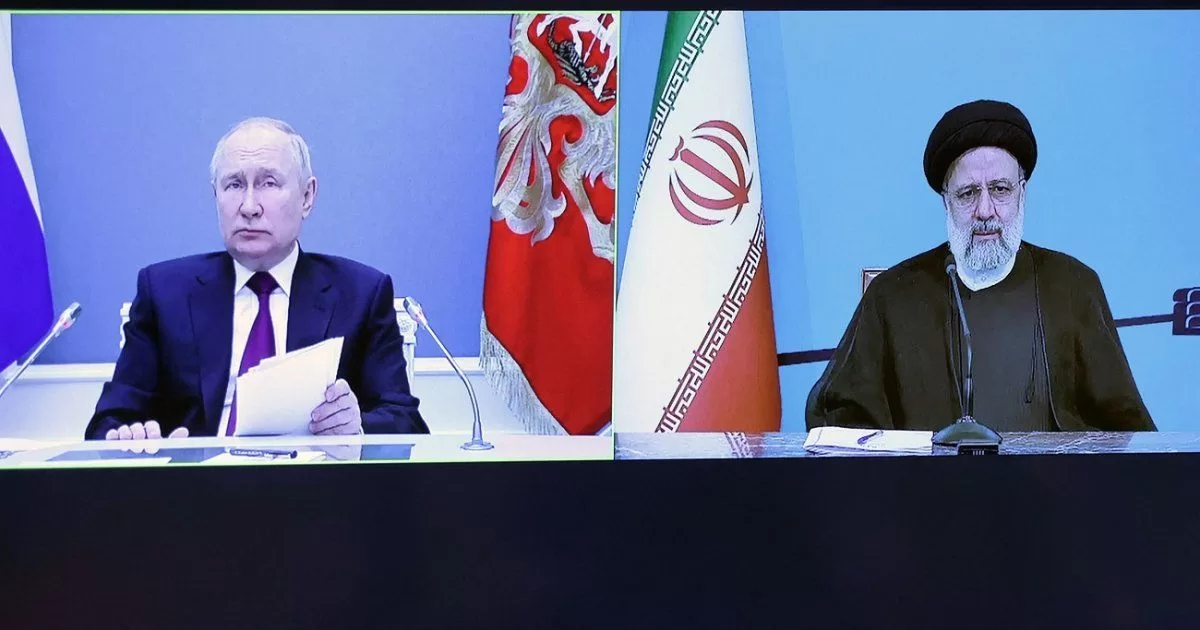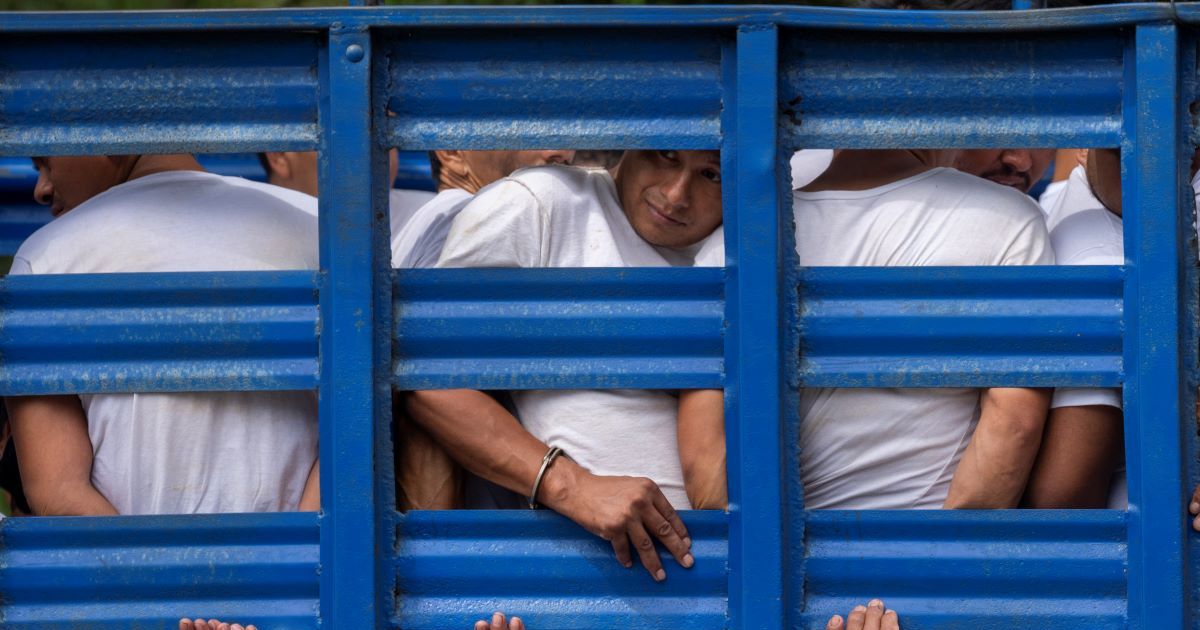GIBRALTAR.- Russia and Iran are coordinating a pincer movement to gain control of the Red Sea by supporting Houthi terrorists in Yemen and rebel paramilitaries in Sudan. While the Iranian Islamic Revolutionary Guard (IRGC) supplies weapons and advises Houthi militiamen trying to cut off the route to the strategic Suez Canal, Russian Military Intelligence units support coup forces in Africa to entrench themselves in the area.
According to intelligence sources cited by Reuters and other information agencies, commanders of the (IRGC) and its paramilitary organization Hezbollah are directing and supervising attacks from Houthi territory in Yemen against vessels sailing in this strategic area where 20% of world trade passes. .
Repeated US and British bombings of Houthi military installations in the past two weeks have failed to silence Iranian-supplied missile batteries. Two missiles were launched against a cargo ship of the North American company Maersk this Wednesday, despite the fact that it had a naval escort, forcing the cargo ship to change route. According to the Bloomberg agency, the attacks have resulted in a 25% reduction in shipping traffic through the Red Sea, which would result in substantial increases in global maritime transport in the short to medium term.
Maritime disruption
Maersk, one of the world’s largest shipping companies, has notified its customers to prepare for disruptions to their supply lines as their container ships have to reroute to the Cape of Good Hope, causing 1 to 2 weeks of delay to shipments between Asia and Europe. “While we continue to wait for a resolution in the near future…the current situation remains unsustainable.”
There have been more than 30 missile, drone and small gunboat attacks against cargo ships and oil tankers since the Houthis began their most recent offensive, in support of the Hamas group that attacks Israel in Gaza. Since missiles launched against Israel two months ago were intercepted by anti-aircraft batteries of American destroyers patrolling in the Red Sea, the Houthis have concentrated their attacks on vessels of various nationalities that transit near its waters. Although the group says it only attacks ships heading to Israel, the vast majority of those hit by its missiles and hacked were sailing towards the Suez Canal en route to Europe.
Abdul Malik al-Houthi, hereditary leader of the Shiite tribe of some 100,000 members that bears his name and is militarily organized as the Ansaralah movement with a structure similar to that of Hezbollah, declared last week that they would not attack ships of Russia, a strategic ally. of Iran that provides timely intelligence on maritime traffic to the Houthis. Russian Foreign Minister Sergei Lavrov in turn declared his support for the Houthis, warning of “consequences” if the US and UK persist in the air campaign over Yemen. Lavrov accused Washington and London of “escalating the situation… for selfish interests.”
Earlier this week, American and British aircraft and warships carried out an eighth round of bombing raids against Houthi bases including training camps, command and control posts, radar stations, missile and drone launch sites as well as underground warehouses. weapons using 500-pound Paveway IV bombs, designed to penetrate concrete, according to Pentagon spokesmen.
US plans
“The Biden administration is preparing plans for a sustained military campaign against the Houthis” according to The Washington Post. The Houthis have extensive experience in withstanding airstrikes, having already overcome similar bombings in their previous war with Saudi Arabia that tried to stop their takeover of the Yemeni capital, Sanaa. The group “has great capacity to move its drones and missiles from one point to another,” according to an intelligence expert consulted by DIARIO LAS AMÉRICAS. British Prime Minister Rishi Sunak warned in his parliamentary speech on the conflict that the campaign against the Houthis would be “long-term.”
Meanwhile, Russia advances its march through Africa, consolidating a bloc of satellite regimes in the Sahel, Libya and central Africa while exerting pressure on Sudan, which dominates the eastern coast of the Red Sea. Moscow has been negotiating the acquisition of a naval base with a series of failed governments in Sudan where it now supports the military rebels of the Rapid Deployment Forces led by General Mohamed Dagalo who are fighting to control the capital, Khartoum. They have been armed and advised by paramilitary mercenaries from the Wagner group, placed under the direct direction of the Russian military intelligence service (GRU), since the death of its leadership in an air crash in August.
GRU chief General Andrei Averyanov and Russian Deputy Defense Minister Yunus-Bek Yevkurov have recently traveled to Africa to strengthen agreements with their local allies. Previous contracts with the Wagner Group would be replaced by direct deals with the Russian defense ministry, which is in the process of incorporating thousands of Wagner mercenaries operating on the continent into a new paramilitary company called Africa Korps, according to Russian military bloggers.
In a meeting with Vladimir Putin last July, several African leaders expressed concern about the future of Wagner, who provided them with weapons and a range of advisory and paramilitary services in exchange for mining and oil concessions negotiated through his now-deceased boss Yevgeni Prigozhin. . Averyanov and Yevkurov appear to have smoothed things over in their meetings with military junta ruling Mali, Burkina Faso and Niger. They were threatened by possible intervention by France and Western-aligned African governments, but the countercoup never took place. France withdrew its troops from Niger last month and a Nigerian military delegation visited Moscow in mid-January to call for increases in Russian aid.
Russian military chiefs similarly assured Marshal Haftar, who controls much of eastern Libya, of continued Russian support for his forces facing the central government in Tripoli. Wagner has built extensive bases in Libya equipped with airfields protected by modern air defense systems, containing powerful heavy-lift and combat helicopters, Mi-8 and Mi-35, and even Su-25 fighter aircraft. The facilities now serve to supply Russian mercenaries fighting with General Dagalo’s forces in Sudan to bases in the Central African Republic (CAR), whose president, Faustin Arachange Touadera, met repeatedly with Averyanov last September.
According to CNN, Russian units with operations in the vicinity of Khartoum have been intercepted by drones apparently of Ukrainian origin, based on a video of a drone with Ukrainian acronyms broadcast by that channel. Analysis by experts cited by CNN also indicates that the tactics of FPV loitering munitions used in Sudan against Russian troops are similar to those of Ukrainian special forces that may be operating covertly for the besieged government of President Fattah Al Burhan in its bitter fight with Dagalo and his “Spetznaz”. Ukrainian Foreign Minister Dmytro Kuleba visited several African countries last year and offered help against the Russians.
The Russian siege
With the capture of Sudan, Russia will complete a siege of the Red Sea. A Russian base in Port Sudan would provide key support to the Iranian-led Houthis in Yemen, thus isolating the Anglo-American squadron deployed in the area. Moscow could complement such a move with maneuvers in the Black Sea where last week it once again deployed missile frigates, threatening the strategic maritime grain routes that Ukraine had managed to open with ingenious maritime drone tactics that kept the Russian fleet away for a time.
If Russia and Iran manage to dominate the two seas, they could substantially reduce the flow of both oil and food to much of the world, which would increase the price of their energy and agricultural exports, while strengthening their treasuries while harming countries. Westerners, particularly in Europe. This could be the geopolitical chess move that Vladimir Putin aims to achieve victory in Ukraine and a “Russian Pax” in the Middle East.




